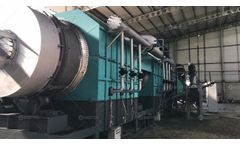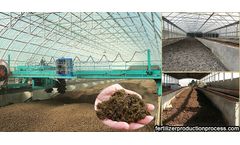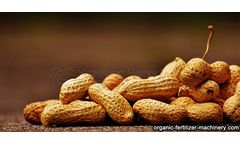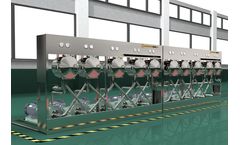Crop Processing Articles & Analysis: Older
9 articles found
Introduction Waste biomass from crop cultivation encompasses various organic materials left after harvesting. ...
Potato agronomy is complex and requires a lot of planning, monitoring and evaluation throughout the production process. CPM finds out how digital agronomy tool Crop4Sight can help in all three areas as preparation for the 2023 season gathers paceIf you fail to prepare, you prepare to fail – an adage that is very relevant when thinking about potato crop ...
This year’s theme, “Rural Women Cultivating Good Food for All,” recognizes the essential roles that rural women and girls play in producing crops, rearing livestock, and processing and distributing foodstuffs - in short, keeping food systems working. ...
In the high temperature, the germs and insects in the feces will be killed, and the macromolecular proteins are decomposed into small molecular proteins that are beneficial to the absorption of crops. The biological fermentation process can effectively prevent the generation of harmful and odorous gases such as hydrogen sulfide, amine gas and indole in the feces, ...
When hemp is dried and processed properly, the quality of hemp produced is much greater. Traditionally, farmers hang hemp plants in barns, where it would take 7-10 days for the crop to dry. This process is time-consuming, expensive, requires a great deal of resources to maintain and limits the amount of hemp farmers can produce at each harvest. ...
But fertilizer types may vary depending on the needs of the crop. Further processing with fertilizer granulator machine is required. If the ordinary compost is further processed, it can be made into organic-inorganic compound fertilizer or bio organic fertilizer. ...
Sweet potato is one of the world's major food crops and one of the four major crops in China. China is still in its infancy in the research and comprehensive development of the sweet potato utilization project. ...
Introduction At present, a great part of vegetable production in Chile is dedicated to industrial agronomy and one of the most important products is the tomato crop for industrial processing. Chile has a capacity of 180,000 tons of tomatoes per year, which is equivalent to 12,000 hectares of crop land. ...
Rising research costs, broadening goals, intellectual property rights, and other concerns increase the need for robust management of crop improvement data. The data model of the International Crop Information System (ICIS) allows breeding processes to be recorded unambiguously in a relational database. ...









